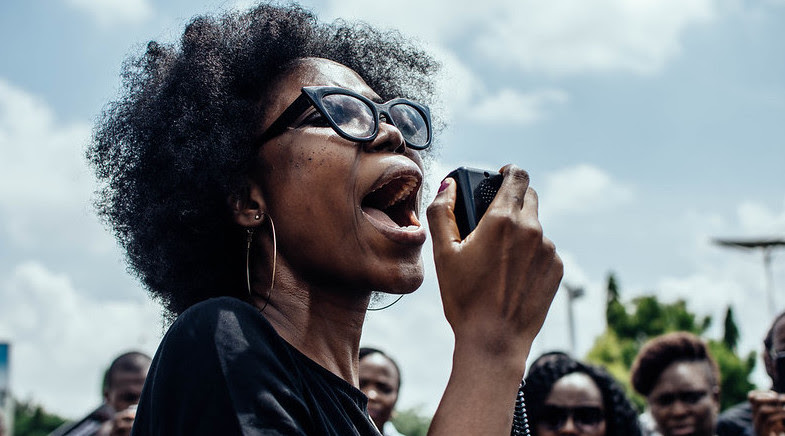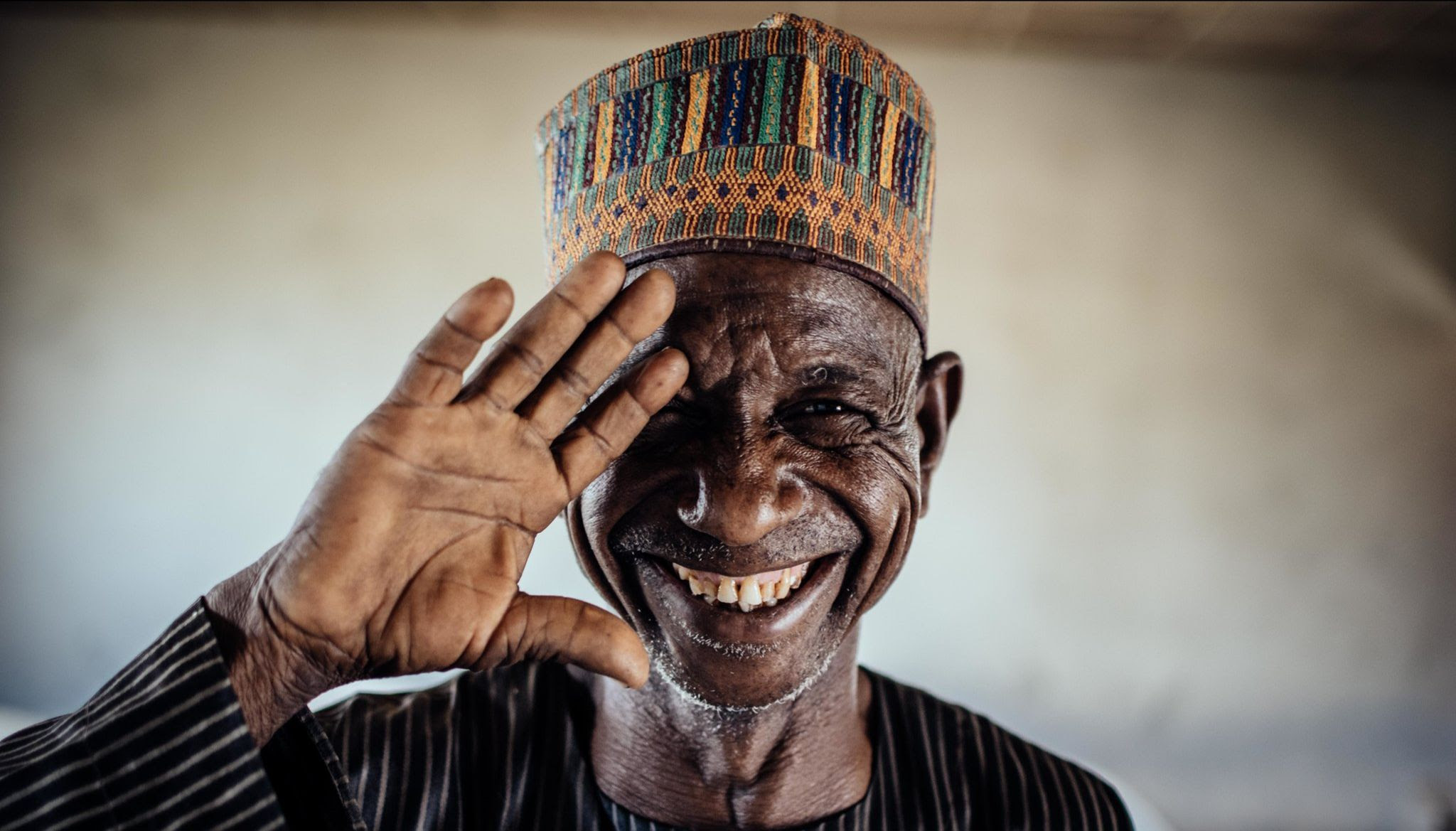Women Can Now Sit at the Table in Obodo-Ugwa
By Kevwe Oghide

The Dawn of a New Day
On the 23rd of September 2020, the women of Obodo-Ugwa, Delta State, took their seats comfortably for the first time at the Community Development Committee (CDC) meeting where issues of rural governance and development were deliberated.
Up until that day, men dominated these meetings and made social & economic decisions on behalf of women. The culture and tradition forbade women from joining meetings that men presided over. If women had concerns, they were expected to tell their husbands or male representatives in the household. Discussing these concerns at community development meetings now comes at the discretion of the male representatives, otherwise women’s opinions and challenges never saw the light of day.

Profiling Obodo-Ugwa
Obodo Ugwa Ogume is a small village with a population of about 4000 people in Ndokwa West Local Government Area of Delta State that produces oil, making it an attraction to Oil and Gas companies. Since it is an oil exploration site, it goes without saying that it’s also a location where gas is flared—a menace that has heightened environmental degradation, caused ill health, poisoned water, polluted farm crops and worse, adversely impacted the fragile phenomenon of the village.
Not only is the livelihood of villagers thwarted but despite being a huge contributor to the Nigerian Economy and an enricher of the pockets of Oil & Gas executives, Obodo- Ugwa has also been denied structural development.
The people of Obodo-Ugwa can be classified as marginalised, vulnerable people whose voices have been ignored and their human rights violated.

Conflict & Fragility Issues: How OXFAM and CODE are changing the status quo
OXFAM Nigeria and Connected Development, two not-for-profit Organisations, kicked-off a Conflict and Fragility Project in the Oil region of Delta State to advocate for the responsiveness of Oil companies to host communities. The campaign addressed the risks associated with the lack of adherence to business principles of operations by actors in the Oil & Gas value chain while engaging with host communities in the Niger-Delta. This often results in conflict and fragility issues.
The campaign envisioned an improved adherence to business principles as contained in the United Nations Guiding Principles [UNGP]. This adherence seeks to improve human rights practices and corporate social responsibility of operators in the oil and gas sector towards their host communities. It urges commodity traders to operate in an accountable, transparent and human-rights-sensitive manner. This can significantly ensure that a mutually beneficial relationship between oil firms and host communities exists.
One of the outcomes of the campaign was to stimulate gender inclusion in local extractive governance to spur an inclusive and effective community development. CODE & OXFAM, known for their advancement of the causes of women’s rights, accelerated action to advocate for gender inclusion in Obodo-Ugwa.

Women Participation and Community Development
Things are starting to look up for Obodo-Ugwa. OXFAM and CODE, on different occasions, organised town hall meetings and advocacy calls where key stakeholders from the Oil & Gas sector such as regulators and oil explorers and community chiefs and leaders deliberated on a way forward.
Recognising the importance of promoting inclusiveness, CODE and OXFAM further intensified efforts to advocate gender inclusion and gender-responsive public services in the community so that women can have a place in local governance structures. Gender inclusion and women participation in communities should be beyond primitive gender role of caring for just the home and family. Women should be empowered to actively participate in politics, economy, social and cultural aspects of life. For women to be able to fully exercise their human rights, gender perspectives have to be mainstreamed in all inclusive social policies.
2 weeks before the inauguration of a new community development committee, CODE’s Programs Associate, Onyekachi Onuoha received a call from the Chairman of the CDC, inviting CODE to witness the result of its advocacy. Community elders now seek to include women in CDC meetings and have women take up executive roles.
Here we are at Obodo-Ugwa witnessing a first-of-its-kind where there is a female vice president of the CDC and a female Finance head. The recognition of women’s participation will have far-reaching impacts in building the community into an inclusive society.
Although traditional norms and value systems in rural areas especially are still limiting the participation of women in community development, CODE, during its advocacy activities in grassroots communities often mainstreams gender-responsiveness and gender equality in its interactions and engagements to ensure communities are informed of the importance of including women in decision-making processes.

Testimonies
“Women do not sit with men at village meetings except when they are summoned. This is a dream come true! Seeing my fellow women as not just members but executives on the Community Development Committee gives me joy! Ehn ehn, now we can say what our needs are without discussing first with our husbands. The village market that they are building was because women complained of long-distance travel to buy food items. I am glad this happened in my time.,” Obodo Ugwa resident, Veronica Obi, beamed.
“This is the first time in the history of the Obodo Ugwa CDC that women will be allowed to participate- not only that- quantum progress has been recorded because 3 women were also added to the CDC executive board- a vice president, a women leader and the CDC Secretary.” – CDC Chairman, Anslem Oyibo.

“Women have now been given management roles. They will oversee the market building and the school completion. They get to make decisions on behalf of the village. This has never happened. I am glad to witness it.” — Community Chief, Chief Friday Okoro.
“We are happy about this development. Look around, women and men were equally represented in this committee. We now have to prove our responsibility. I have plans to request the provision of loan and grants to support women’s initiative. I hope to see that happen. There is so much we can do and conquer.” CDC Vice chairman, Patricia Oluomo stated.






 We were certain that the current COVID-19 health emergency was worsening
We were certain that the current COVID-19 health emergency was worsening 


















